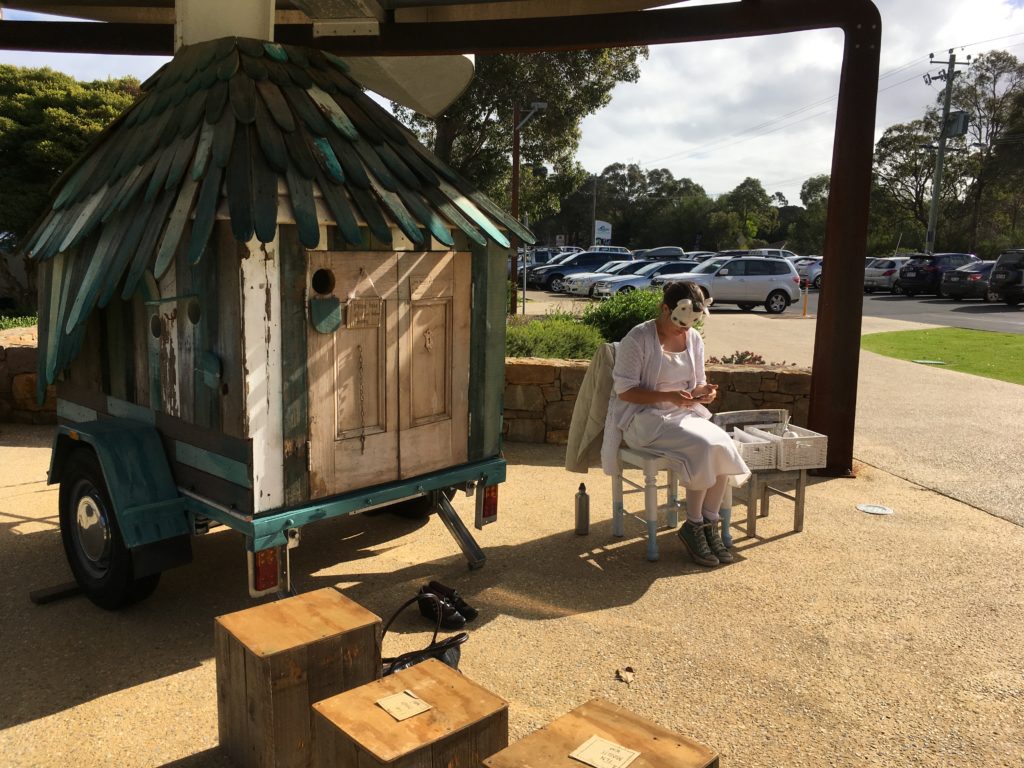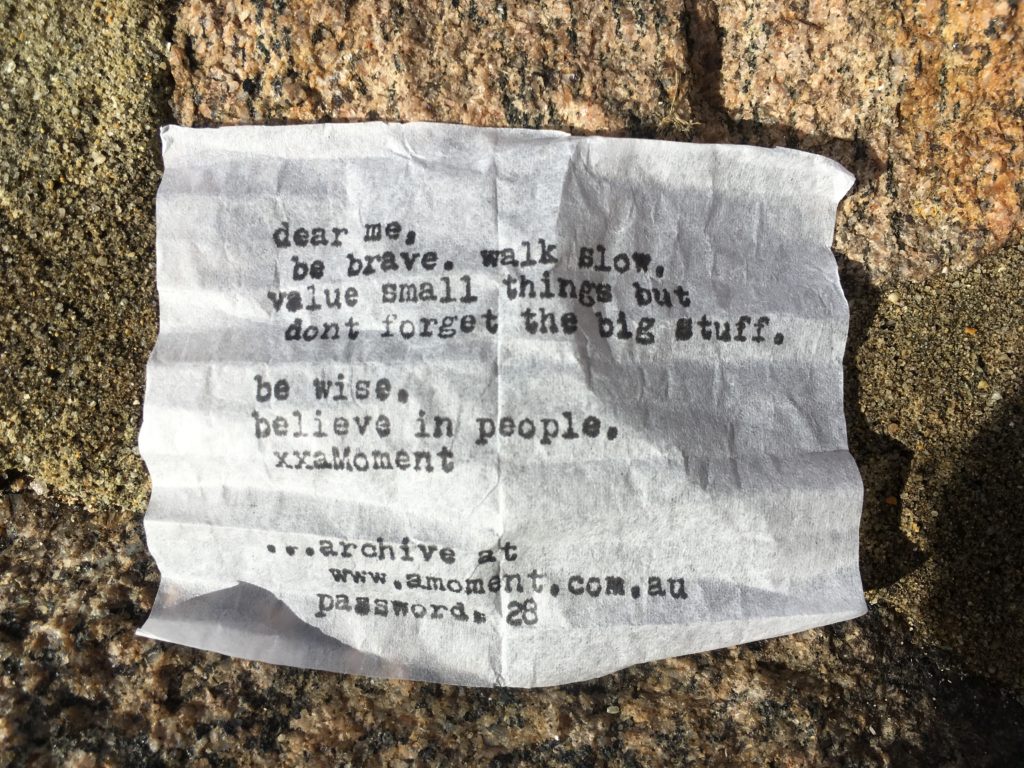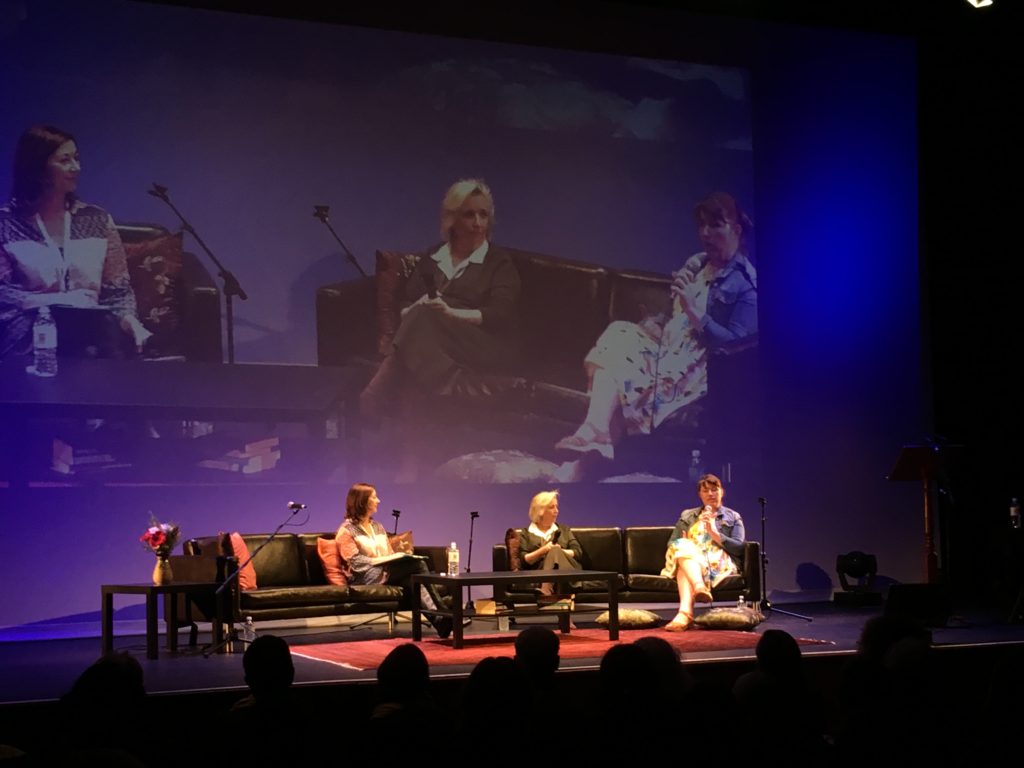A question is asked from the balcony by one of the volunteer attendants in the last session of the Margaret River Readers and Writers Festival . Three panelists are sharing their favourite reads.
Now, this bit will become important soon. The panelists are a young adult author who is currently completing her Honours at University; an older author who has worked as a sessional academic teaching creative writing at a local university; a minister and advocate for a prominent overseas aid agency. The session is chaired by the literary editor of a state daily newspaper.
Anyone remember the Sesame Street segment where someone is looking for something starting with “G”, and the dancing goat in the background is soooo happy when the person FINALLY noticed something that does?
The question from the balcony:
“Where could I go to get reading recommendations for a 42-year-old man who has been turned off the idea of reading by having to do compulsory reading earlier on in his life?”
The very helpful panelists tried their best. As good supporters of local traders they mentioned the name of the main street independent bookseller. Or, really, “any good bookshop would do”. A member of the audience sitting next to me took the mic and was helpful “try reading the first paragraph of books on the shelves in the shop, that usually works really well”.
Now, I had just had the mic, to ask the last question. It would have felt very rude to ask for it again, so I waited until the inevitable suggestion from SOMEONE, audience or panelist, in this room full of around 400 self-professed reading-lovers. That suggestion that would go something like:
Most towns have at least one person paid to impartially suggest what to read to anyone who walks in off the street, or who calls, or emails; someone whose only interest is in promoting your reading, and not trying to sell you something.
But it simply did not come.
Walking away from the festival I thought
On the panel there was a university student who had recently had a school library, an academic who I know works at an institution with very active and competent librarians, a minister who used to be a mayor of a major local government area that funded a library, and a journalist who I know hosts events at local public libraries.
Like hospitals, everyone knows what a library is. What it does. And these people (and the audience) were more likely than most to be aware of that.
I thought:
If “Ask a librarian” does not come instantly to mind for these folk, then THEIR librarians have let their clients down. Why don’t they have a closer, more visible relationship with just one of these people?
Followed a little later by:
Maybe, just maybe, it is because we live in a time of restricted resources. Libraries cannot serve everyone and have to triage. Public libraries are focussing on services to people who cannot otherwise access information, like migrants and people without extra cash to attend writers’ festivals. Academic libraries focus on students who need extra help, rather than those capable of writing their own novels, and tend to be there more for researchers than teachers. Maybe the journalist and ex-mayor are comfortable enough that they find the financial cost of buying books outweighs the time-cost of getting them through their local library.
But, two things still bug me.
- The people in that room, audience and panelists, are both financially comfortable and love reading. Even if they do not directly use our services, even if they do not feel like they have their own “personal librarian”, these people in all likelihood will be making funding decisions about our futures.
- If the question had been “where can I go to get free wifi?” or “is there a place with study desks that I can sit for a few hours and work?”, then (after the first answer which is likely to have been “coffee shop” ) my guess is that the room would have suggested the library.
What does this mean? Libraries are more salient than librarians? What we think is a major part of what we do is not what some of our most sympathetic supporters would identify?
I don’t quite know. But it is … worrying…





